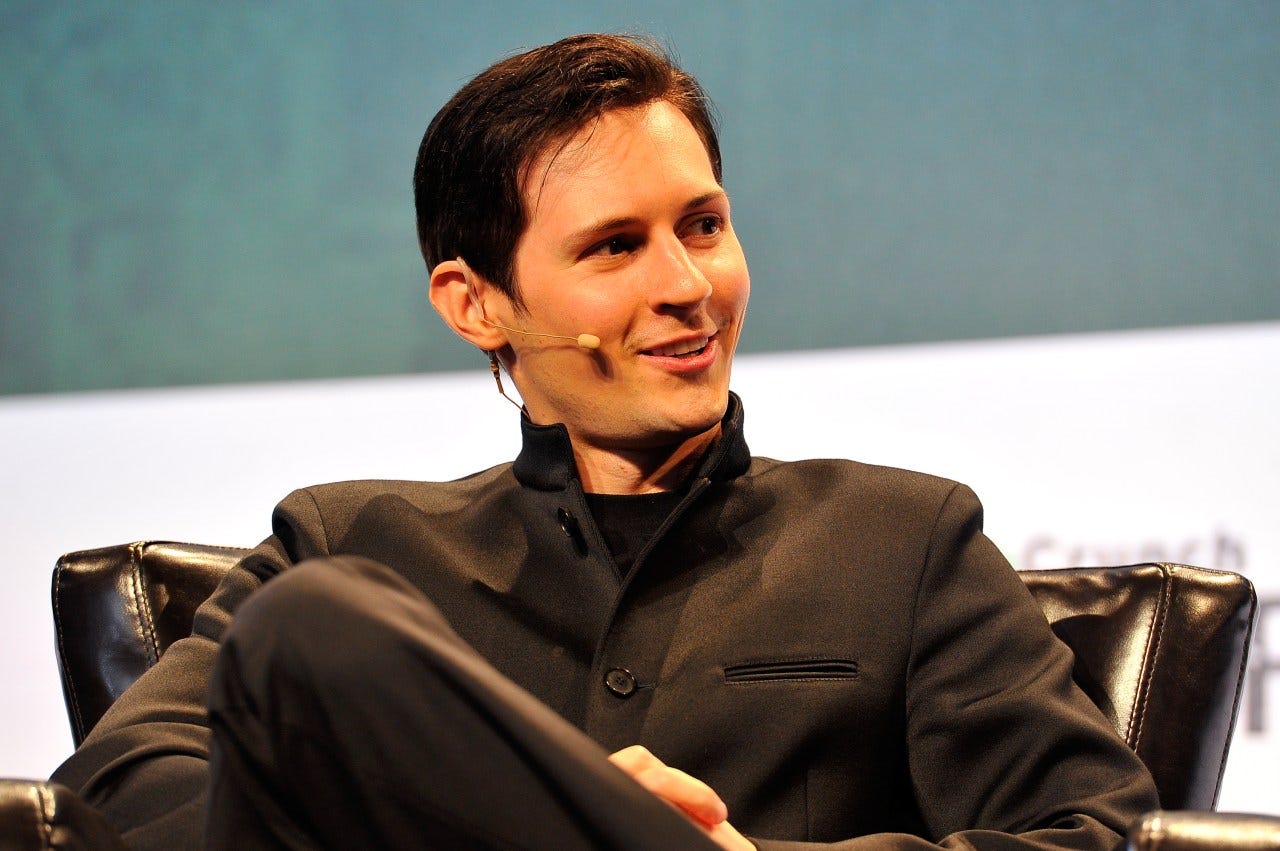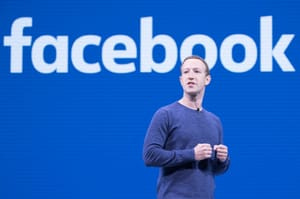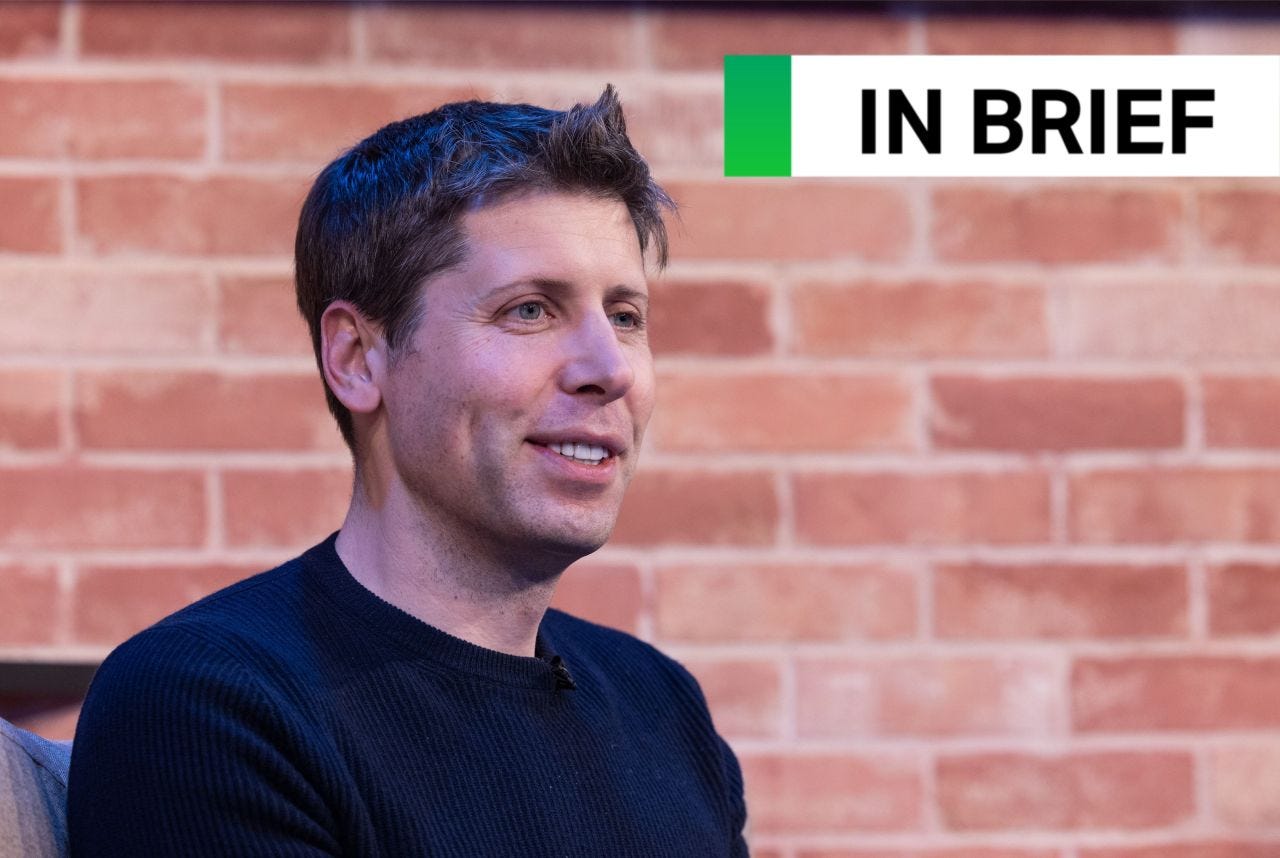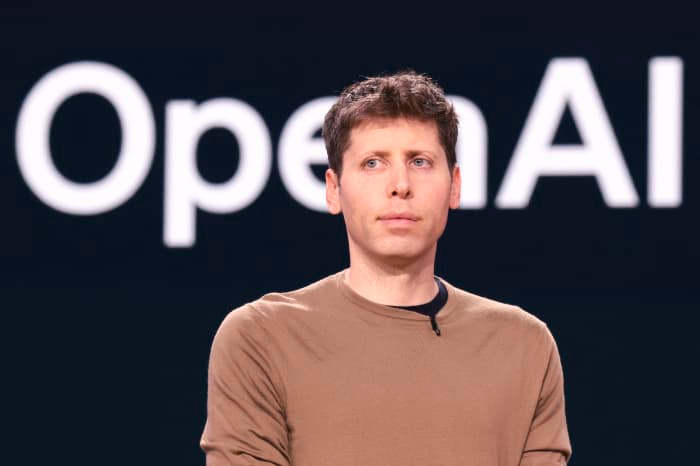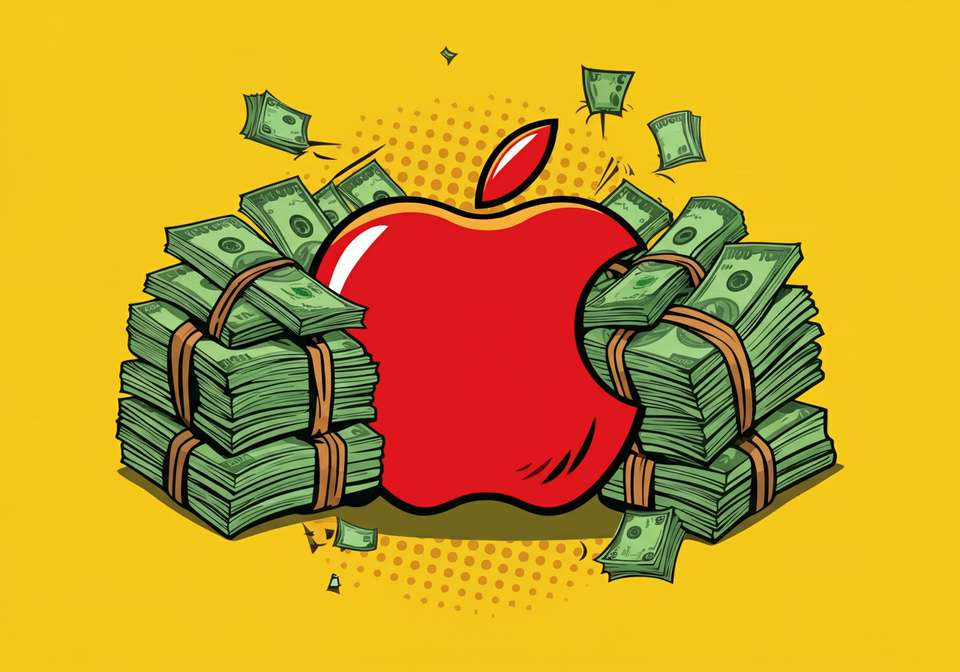A reminder for new readers. Each week, That Was The Week includes a collection of selected readings on critical issues in tech, startups, and venture capital. I chose the articles based on their interest to me. The selections often include viewpoints I can't entirely agree with. I include them if they provoke me to think. The articles are snippets or varying sizes depending on the length of the original. Click on the headline, contents link, or the ‘More’ link at the bottom of each piece to go to the original. I express my point of view in the editorial and the weekly video below.
Hat Tip to this week’s creators: @romaindillet, @nickwingfield, @JenniferMerode, @Ike_Saul, @terrence_mccoy, @TrishaThadani, @falamarina, @jacknicas, @kateconger, @rocketalignment, @ZeffMax, @MGSiegler, @anissagardizy8, @alex, @AnnaGetsPithy, @IndianIdle, @Katie_Roof, @Kyle_L_Wiggers, @elonmusk, @bindureddy
Contents
Editorial: Irrational Liability: is Telegram a Criminal Plot?
California AI Bill’s Opponents (CNBC)
Elon Musk Supports California AI Bill
Elon Musk is for free speech
!
Editorial: Irrational Liability
This newsletter uses Telegram to broadcast articles saved during the week to a small number of members.
This week, Telegram’s founder, Pavel Durov, was arrested by French police at the behest of prosecutors seeking to charge him with a myriad of crimes, including the distribution of CSAM material and also drug sales.
Durov has not done any of the things he is charged with, as far as one can tell, but it is possible that Telegram users have.
It is also possible that these crimes have been committed using apps or websites on every social network in the world.
Telegram supports public chats in groups and private chats. Pavel is accused of refusing to cooperate with police in surveilling private chats and, thus, “enabling” criminal acts.
Telegram is not end-to-end encrypted for public spaces but for private chats. To preserve the privacy of its legal users, the keys to the private chats are stored on a large number of servers spread across a large number of places.
So, unlocking the private spaces is beyond the means of any single jurisdiction.
Apple, you may recall, goes even further with its Messages platform, deleting the keys required to unlock private content. We can assume that anything criminal happening on Telegram also happens on iPhones, iPads, and Macs.
So, what should we understand about this arrest? Durov is not a bad actor. Or if he is, then so is Tim Cook, WhatsApp owner Mark Zuckerburg, Signal's owner, and so on.
The French Government (prosecutor in this case) is acting out of a desire to break private encrypted spaces by forcing platform owners into criminality. It seems likely that other governments will feel the same way. In a well-written piece for the Guardian, Jennifer Rankin (see below) states that:
”Durov’s arrest – after an investigation by the Paris prosecutor into organised crime, child sex abuse images, fraud and money laundering on the platform – also raises the stakes for the European Union, which has adopted the world’s most ambitious laws to police the internet, notably the Digital Services Act (DSA). Coming into force in November 2022, the DSA targets online platforms “too big to care” – in the words of the EU commissioner, Thierry Breton – putting demands on internet firms to remove illegal content, protect children, tackle disinformation and other online harms.”
The implication is clear. If the encryption can be broken, the DSA will increasingly be used to restrict private communications. The Guardian notes that anti-democratic Governments in Russia also want this to help them unmask activists opposed to Putin.
So, despite the claims of criminality, the victim here will be privately protected communications. Or companies will build systems that have no key that can be unencrypted, like Apple.
By comparison, this would be like arresting a bar owner because third-party customers had private conversations in the bar, some of which were criminal. It would paint the proprietor with the same colors as the criminals and punish him if he refused to record their conversations.
So, it will not surprise you that I consider this arrest an excellent example of irrational liability. There are indeed many criminals among the human race. It is also true that these criminals use tools that law-abiding citizens also use. It seems clear that Telegram, or a bar in Paris, is not to enable criminal acts. But it does have a duty of care to preserve privacy.
To make Durov liable for Telegram users is an injustice and an abuse of state power by officials who realize it is impossible to prevent privacy, so they resort to bullying and coercion.
We would certainly not be OK with the postal service opening every letter to try to fund the criminal needles in the haystack. We should also not be OK with attempts to break encryption, even with the same aims.
Mark Zuckerburg revealed this week that the Biden administration placed “enormous pressure” on Meta to censor COVID material and not to publish revelations regarding Hunter Biden.
“The Biden administration, including the White House, repeatedly pressured our teams for months to censor certain COVID-19 content, including humor and satire,”
Zuckerberg wrote, adding,
“I believe the government pressure was wrong, and I regret we were not more outspoken about it.”
Now, the Brazilian Government is also in on the act, punishing Elon Musk’s companies (not only X) due to X’s failure to respond to “government requests to suspend accounts found to be spreading fake news.”
There is a more significant issue here. Technology has reached the stage where almost any helpful software or hardware is instantly global. Rights exist locally, but technology is global. Regulation by national jurisdictions means international companies face slow and inconsistent accusations, often influenced by undemocratic regimes. Any democratic instinct is soon confronted with attempts to exercise government control.
Apple’s reaction, to encrypt conversation and throw away the keys, is rational in the context, as is its refusal to ship AI software into the EU due to not knowing what it is, and is not, allowed to do.
If humanity's best is innovating and advancing goals we all share while nation-state leaders seek to stop, slow, block, and censor, then it might be time to question how we organize the world. Defining individual rights in a global context is undoubtedly challenging, but not doing so might be worse.
Essays of the Week
Paris court explains why it’s arrested Telegram founder Pavel Durov
3:53 AM PDT • August 27, 2024
When Pavel Durov, founder and CEO of messaging app Telegram, was arrested on August 24, French authorities did not respond to requests for comment. The secrecy of pre-trial investigations and inquiries is an important principle in the French judicial system.
French television network TF1 reported that the main issues are Telegram’s (lack of) moderation processes and unwillingness to cooperate with law enforcement, especially when it comes to drug trafficking, money laundering and child sexual abuse material (CSAM).
But the court in charge of the investigation, the Paris criminal court, probably didn’t expect to garner so much attention and speculation. The billionaire owner of X, Elon Musk, posted“#FreePavel” on his own social networking platform. Edward Snowden — the NSA whistleblower and privacy campaigner — implied Durov’s arrest was a political decision taken by French president Emmanuel Macron.
Given that Telegram is the most popular social app in Russia and Ukraine, it also became a hot topic for both Russian authorities and the Russian opposition.
The publicity circus accompanying the arrest explains why the court decided to share a press release listing the charges against Durov. According to this document, the Paris Public Prosecutor’s Office opened a preliminary investigation against Durov on July 8 related to efforts to combat cybercrime.
The Centre for the Fight against Cybercrime (C3N) and the Anti-Fraud National Office (ONAF) have been involved in the investigation. In all, 12 charges have been filed against “a person unnamed” — a classic French judicial term to imply whoever is in charge of Telegram right now.
The charges can be broken down into four categories:
Telegram’s founder has been charged with being complicit in storing and distributing CSAM content, facilitating drug trafficking and facilitating organized fraud and other illegal transactions.
The court claims that Telegram refuses to cooperate with law enforcement when they file a formal request for information or documents.
Durov faces several charges related to Telegram’s cryptographic features as they haven’t been formally declared or certified by French authorities. These seem to be minor offenses according to professor of law Florence G’sell.
Durov is accused of taking part in a “criminal association with a view to committing a crime or an offense punishable by 5 or more years of imprisonment,” as well as money laundering.
The charges are both broad and technical at the same time. It’s also hard to know exactly their basis without access to the full investigation.
Telegram CEO Released From French Custody
Four days after Telegram’s CEO was arrested at an airport outside Paris, French authorities have released Pavel Durov.
The AP reported that prosecutors in Paris have ordered Durov, who has French citizenship, to appear before a judge to face a possible indictment. French authorities say they are investigating illegal activities on the messaging app, including drug trafficking and child sexual abuse material.
Separately, The Wall Street Journal reported on Wednesday that French spies in 2017 attempted to hack Durov’s iPhone due to their concern over the use of Telegram by terrorists to recruit operatives and coordinate attacks. The story also said that in past years Telegram ignored subpoenas and other legal orders, which accumulated in a company email inbox that Telegram didn’t monitor closely.
Stakes high for European Union after arrest of Telegram co-founder
Jennifer Rankin in Brussels
The charges against Pavel Durov increases pressure on Brussels to enforce new European law on the platform
Wed 28 Aug 2024 03.00 EDT
The surprise arrest of the Russian-born co-founder of Telegram, Pavel Durov, after he stepped off his private jet in Paris last Saturday night, has brought the one-time fringe social network under the glare of the spotlight like never before.
Durov’s arrest – after an investigation by the Paris prosecutor into organised crime, child sex abuse images, fraud and money laundering on the platform – also raises the stakes for the European Union, which has adopted the world’s most ambitious laws to police the internet, notably the Digital Services Act (DSA). Coming into force in November 2022, the DSA targets online platforms “too big to care” – in the words of the EU commissioner, Thierry Breton – putting demands on internet firms to remove illegal content, protect children, tackle disinformation and other online harms.
The European Commission has kept its distance from the French investigation into Durov. “It is purely a criminal investigation at national level, carried out by the French authorities … based on French criminal law,” a spokesperson said. “It has nothing to do with the DSA.”
But the charges laid out against the 39-year-old tech billionaire increase pressure on the commission and Belgium, the member state responsible for regulating Telegram on behalf of the bloc. “If there is such a big problem with content moderation that it is actually criminally relevant … why hasn’t that been addressed under the DSA yet?” said Jan Penfrat at the European Digital Rights group (EDRi), a coalition of NGOs. “One possible answer is, of course, the DSA is new … but still it does create a kind of pressure on the authorities.”
The hybrid messaging service/social network, which has groups of users up to 200,000-strong, has worried European politicians for months. While Telegram has been favoured by pro-democracy activists in Russia, Hong Kong and Iran, it has also become a haven for extremists, criminals, conspiracy theorists and pro-Kremlin propagandists. In Lithuania, police have set up special units to monitor Telegram and other platforms in a bid to curb drug trafficking, while Dutch police told the country’s public broadcaster that it had had little cooperation from the platform after NOS journalists found 2.5m messages offering drugs on the site in 2023.
Based in the United Arab Emirates, Telegram has mushroomed to nearly a billion users worldwide while under limited regulation. But despite claiming only 41m active monthly users in the EU, it now faces new demands under European law.
Enforcement of the law could be a weak link in the chain. Belgium – along with five other EU member states – is subject to ongoing EU legal proceedings for failure to empower its “digital services coordinator”, the organisation responsible for enforcing the DSA. While the Belgian government has charged the Belgian Institute for Postal Services and Telecommunications to enforce the DSA, the agency lacks sufficient powers, meaning it is unable to launch investigations into Telegram.
Telegram, however, may come under direct purview of the EU executive. Until now it has not been subject to strictest regulation that only applies to the largest platforms, such as Meta’s Facebook and X, formerly known as Twitter. Under EU law only platforms with more than 45m monthly active users are “very large online platforms” [VLOPs] subject to the most stringent requirements, and direct supervision by the commission.
Senior EU officials are not convinced by Telegram’s claim to be just under the threshold, with 41m active monthly users in the EU. “Telegram is an issue,” Vĕra Jourová, a European Commission vice-president told Bloomberg in May. “We are now checking whether the figure is right,” she said, adding that “even the smallest platforms can do a very dangerous job in several member states”, referring to Telegram’s popularity in eastern EU countries with large Russian-speaking minorities.
The commission spokesperson said on Tuesday that it was “carefully analysing” Telegram’s figures, adding: “Once we will come to a clear conclusion, we will indeed not hesitate – if they meet the threshold – to designate Telegram [as a VLOP].”
Separate to these ongoing talks between the commission and Telegram, the platform must publish its latest monthly user data in the EU by the end of this month.
…More
Zuckerberg's letter on Facebook censorship.
Mark Zuckerberg’s letter to Congress. On Monday, Meta CEO Mark Zuckerberg sent a letter to the Republican-led House Judiciary Committee claiming that the Biden administration had pressured the company to "censor" content related to Covid-19 in 2021. Zuckerberg also said that Meta should not have temporarily suppressed a 2020 New York Post story about the contents of Hunter Biden’s laptop while it waited for fact-checkers to verify the article’s details.
Back up: The House Judiciary Committee, led by Rep. Jim Jordan (R-OH), has claimed that Meta (which owns Facebook and Instagram) and other social media platforms have censored conservative speech online. In July 2023, Jordan threatened to hold Zuckerberg in contempt of Congress for refusing to cooperate with a probe into social media censorship; Zuckerberg and other social media executives have been subject to heightened Congressional scrutiny in the past year.
The issues referenced in Zuckerberg’s letter stem from a push against misinformation about Covid during the first year of President Biden’s term. That year, Surgeon General Vivek Murthy released a surgeon general's advisory that highlighted the "urgent threat" of false information about the pandemic, while Biden said misinformation about Covid vaccines was “killing people” (a statement he later walked back). In 2022, a group of Republican attorneys general sued the Biden administration over an alleged pressure campaign on social media companies to suppress posts that it thought would contribute to vaccine hesitancy. The Supreme Court eventually sided with the Biden administration, but Congressional Republicans have continued to investigate related claims.
Separately, in October 2020, when the New York Post published the story detailing the contents of a laptop that belonged to Hunter Biden, Joe Biden’s son, containing salacious photographs and email exchanges between Hunter and an executive at the Ukrainian energy company Burisma. Soon after the piece was released, Twitter blocked it from being shared and Facebook throttled the story over the FBI’s claims that the material was Russian disinformation. The emails were later authenticated, and then-Twitter CEO Jack Dorsey apologized for blocking the story.
What just happened: Zuckerberg’s letter is his own mea culpa for Facebook’s handling of both pandemic-related content and the Hunter Biden laptop story. “The Biden administration, including the White House, repeatedly pressured our teams for months to censor certain COVID-19 content, including humor and satire,” Zuckerberg wrote, adding, “I believe the government pressure was wrong, and I regret we were not more outspoken about it.”
Zuckerberg also said the decision to throttle the Hunter Biden story was prompted by an advance FBI warning about a potential Russian disinformation campaign in the lead up to the 2020 election, but wrote, “In retrospect, we shouldn't have demoted the story. We've changed our policies and processes to make sure this doesn't happen again.”
Finally, Zuckerberg noted that he will no longer fund local election jurisdictions to help them administer elections, writing that while previous donations were intended to be nonpartisan and spread across urban, rural and suburban communities, they created a perception that “this work benefited one party over the other.”
After the release of the letter, House Republicans called it “a big win for free speech,” adding that it validated their longstanding assertions about censorship on Facebook.
Today, we’ll explore arguments from the left and right about Zuckerberg’s letter and the debate over censorship online. Then, my take.
What the left is saying.
The left criticizes the letter, arguing that Zuckerberg is complaining about acceptable government behavior.
Some say Zuckerberg is pandering to Republicans.
Others suggest the letter is a strategic move to take attention off Meta.
In Newsweek, Jason Fields said “Zuckerberg's problem isn't free speech, it's lies.”
“Social media has always been about us promoting ourselves and our ideas to friends, family, and—if you get lucky or the algorithmic gods grab you—the wider world. What it has not been about is supplying the world with accurate information,” Fields wrote. “At its most malevolent, some individual or group posts information that's false and can harm others, or even kill them. Like maybe telling people not to get a vaccine to protect themselves against a deadly disease, for fun… A government agency responsible for the public's health and welfare should certainly have the same freedom to report something as a crabby individual who thinks that your new swimsuit is too revealing.”
“So, let's see if we've got all this straight: The head of one of the largest tech companies has sent a letter to Congress complaining about how his own company behaved during the COVID epidemic when asked by the government to get the story straight,” Fields said. “Whichever party is in control of the levers of government, the government gets to ask—not tell. Facebook gets to say yes or no. Everything else is purely an internal issue for Mark Zuckerberg and Silicon Valley's people of conscience, it doesn't have anything to do with the First Amendment.”
In CNN, Jon Passantino called the letter an “election-season gift to Republicans.”
“In recent days, the Meta chief executive has made newsworthy public statements implicitly supporting right-wing ‘censorship’ narratives and offered praise for Donald Trump as ‘badass’ – even as he claimed he wanted to appear ‘neutral’ and nonpartisan,” Passantino said. “Zuckerberg’s decision to describe the White House’s attempts to flag Covid misinformation as pressure and censorship came despite a 6-3 decision this summer by the Supreme Court ruling that the federal government had not overstepped by asking platforms to take down potential misinformation.
“But Zuckerberg’s letter publicly played into the hands of Republicans, who have long falsely claimed that social media platforms colluded with liberal government officials to censor conservative voices… In recent years, the platforms run by Zuckerberg and billionaire Trump supporter Elon Musk have eliminated many of the guardrails designed to reduce the spread of viral misinformation, including allowing Trump to return after he was banned in the wake of the January 6 attack,” Passantino wrote. “The remarks show Zuckerberg offering Republicans an olive branch ahead of the election, and some political ammunition to wit.”
In Bloomberg, Dave Lee wrote “Zuckerberg’s free-speech ‘mea culpa’ is a sleight of hand.”
“Zuckerberg is bending Jordan’s committee to his own benefit: repackaging old apologies or statements and taking the chance to shore up his company’s defenses against undue government pressure in the future — no matter who ends up in the White House in January,” Lee said. “Jordan’s investigation began with a desired conclusion before working backward to pick up whatever shred of questionable evidence it could find to support it, contorting acceptable acts of social network governance into high crimes against freedom of speech. The committee’s efforts have achieved little other than noisy headlines.
“With his letter, Zuckerberg gives Jordan his ‘I told you so’ moment, a chance to look as if he’s achieved something. But the letter’s critical admissions had been made publicly long ago,” Lee wrote. “Zuckerberg’s letter is more evidence that the 40-year-old has gained considerable wisdom in his years as a regular Capitol Hill punching bag. He’s given Jordan his hollow victory lap while giving up nothing his company hadn’t already surrendered. I’d call that capitalizing, not capitulating.”
What the right is saying.
The right feels vindicated by the letter, noting that Zuckerberg affirmed several narratives once branded as conspiracies.
Some say Zuckerberg’s mea culpa is not believable.
Others say the letter tacitly admits that Meta made content decisions based on government requests.
In USA Today, Nicole Russell said “Republicans were right.”
“It's sad but not shocking that Joe Biden's White House pressured a major social media company to block Americans' access to information deemed by government censors as inappropriate. Stories about government interference with Facebook and Twitter, now known as X, have been swirling for some time,” Russell wrote. “But the fact that Zuckerberg has acknowledged years after the fact that the Biden-Harris administration repeatedly pressured the company to censor content, even jokes, during the pandemic is quite damning.”
“When something like Zuckerberg's letter becomes public, and an idea that Democrats have long claimed is petty and false turns out to be true, I wonder if the same thing could be happening about other important issues,” Russell said. “In fact, Zuckerberg pointed to one such issue in his letter Monday. He said the FBI warned Meta about a ‘potential Russian disinformation operation’ before the 2020 election involving the Biden family and Burisma… Zuckerberg said that Meta no longer demotes posts in the United States while waiting for fact-checkers to complete their work.”
In The Las Vegas Review-Journal, Debra J. Saunders wrote “Zuckerberg says Facebook will be ‘neutral.’ Too little, too late.”
“I don’t believe Zuckerberg’s claim for a minute. I don’t believe that Facebook will stand up to government pressure if Kamala Harris wins in November. Methinks the social media giant will resist only if Donald Trump wins,” Saunders said. “And really, Zuckerberg must think his critics are absolute idiots if he believes they’ll buy his newfound support for, as his letter claimed, ‘promoting speech and helping people contact in a safe and secure way.’ No, that’s the lie Silicon Valley tells to make Big Tech look open to dissenting viewpoints.”
“The man ranked the fourth-richest person in the world by Forbes has contributed to the occasional Republican, but when Zuckerberg contributed directly to campaigns, the overwhelming share of his largess went to Democrats. Of course, Zuckerberg is free to direct his money toward the political causes he holds dear. But he is not going to convince conservatives that he is ‘neutral.’”
In The Wall Street Journal, Philip Hamburger described “the ‘tell’ in Zuckerberg’s letter.”
“It’s important to look closely at what the letter says and what it doesn’t. On the one hand, Mr. Zuckerberg concedes what by now is obvious—that there was much government pressure for censorship,” Hamburger wrote. “On the other hand, he distances Meta’s censorship decisions from the government pressure… Zuckerberg (and surely his lawyers) thus admits both the pressure and the social-media censorship but carefully keeps the two apart.”
“Zuckerberg isn’t denying that the government caused some of Meta’s censorship decisions. The letter is too carefully drafted to say something so obviously untrue,” Hamburger said. “The closest the letter comes to admitting causation is Mr. Zuckerberg’s assertion that he told his teams at the time that ‘we should not compromise our content standards due to pressure from any Administration in either direction—and we’re ready to push back if something like this happens again.’ This sounds like bold defiance. But ‘if something like that happens again’ suggests that Meta didn’t push back when it happened before—a backhanded admission that government pressure caused Meta to ‘compromise.’”
My take…
Brazilian judge orders suspension of X in dispute with Elon Musk
Latin America’s largest country, X’s fourth largest market, is a key arena in the global debate between free speech and disinformation.
By Terrence McCoy, Trisha Thadani and Marina Dias
August 30, 2024 at 4:41 p.m. EDT
RIO DE JANEIRO — A Brazilian supreme court justice on Friday ordered the suspension of X in Latin America’s largest country, a dramatic escalation in a months-long dispute with platform owner Elon Musk over the limits of freedom of speech in an era gripped by polarization and disinformation.
The order by Justice Alexandre de Moraes, which did not immediately take the site down, could affect more than 20 million X users in Brazil and deprive the platform of one of its largest and most active markets. The closely watched dispute has made Brazil a key venue in the global debate between free speech and disinformation, and has become central to Musk’s mission of making X a “free speech public square.”
It was the second time this week that a foreign government has clamped down on a social media platform. On Monday, French authorities said they had arrested Telegram founder and chief executive Pavel Durov in a probe of illegal child abuse activity on the messaging app.
Musk, among others, condemned Durov’s arrest as an attack on free speech; the future, he suggested, could include “being executed for liking a meme.” The ruling on his own platform came after he declined to comply with a request by Moraes to reestablish a physical presence in Brazil. Moraes, one of the world’s most aggressive prosecutors of disinformation, says X needs a representative in this country of 215 million people to respond to government requests to suspend accounts found to be spreading fake news.
Musk refused, saying anyone he appointed would be exposed to the possibility of arrest. Moraes responded by freezing the bank accounts of Starlink, another Musk company active in Brazil, and giving him 24 hours to name a representative in Brazil.
SpaceX, of which Starlink is a subsidiary, did not immediately respond to a request for comment.
Brazil Blocks X After Musk Ignores Court Orders
The social network will go dark in the nation of 200 million, the result of an escalating fight between Elon Musk and a Brazilian judge over what can be said online.
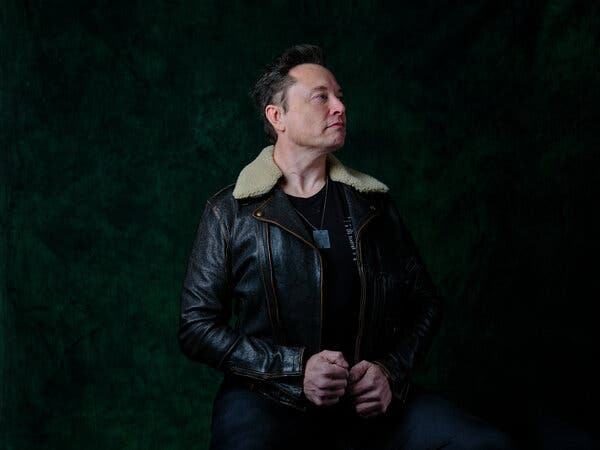
By Jack Nicas and Kate Conger
Jack Nicas reported from Rio de Janeiro, and Kate Conger from San Francisco.
Aug. 30, 2024Updated 7:07 p.m. ET
Brazil blocked the social network X on Friday after its owner, Elon Musk, refused to comply with a Brazilian judge’s orders to suspend certain accounts, the biggest test yet of the billionaire’s efforts to transform the site into a digital town square where just about anything goes.
Alexandre de Moraes, a Brazilian Supreme Court justice, ordered internet providers to block access to X across the nation of 200 million because the company lacked a necessary legal representative in Brazil.
Mr. Musk closed X’s office in Brazil last week after Justice Moraes threatened arrests for ignoring his orders to remove X accounts that he said broke Brazilian laws.
X said that it viewed Justice Moraes’s orders as illegal and that it planned to break their legal seal and publish them. “Free speech is the bedrock of democracy and an unelected pseudo-judge in Brazil is destroying it for political purposes,” Mr. Musk said on Friday.
In a highly unusual move, Justice Moraes also said that any person in Brazil who tried to still use X via common privacy software called a virtual private network, or VPN, could be fined nearly $9,000 a day.
In another uncommon move, Justice Moraes froze the finances of a second Musk business in Brazil, SpaceX’s Starlink satellite-internet service, to try to collect $3 million in fines he has levied against X. Starlink — which has recently exploded in popularity in Brazil, with more than 250,000 customers — said that it planned to fight the order and would make its service free in Brazil if necessary.
Mr. Musk and Justice Moraes have been sparring for months. Mr. Musk says Justice Moraes is illegally censoring conservative voices. Justice Moraes says Mr. Musk is illegally obstructing his work to clean up the Brazilian internet.
In his order, Justice Moraes said Mr. Musk was an “outlaw” who intended to “allow the massive spread of disinformation, hate speech and attacks on the democratic rule of law, violating the free choice of the electorate, by keeping voters away from real and accurate information.”
The fight is now at the center of Mr. Musk’s bid to turn X into a safe haven for people to say nearly anything they want, even if it hurts the business in the process.
..More
Video of the Week
AI of the Week
California AI Bill Passes Assembly Vote
By Rocket Drew
Proposed California legislation that seeks to regulate artificial intelligence makers passed a vote in the state Assembly 46 to 11 on Wednesday, overriding mounting objections from business groups and bi-partisan lawmakers, including some of the state’s top Democrats.
With the vote, SB 1047 will return to the state Senate this week. If it passes, it will go to Calif Gov. Gavin Newsom to be vetoed or signed into law.
Five assembly members spoke in favor of the bill before the vote. Democrat Steve Bennett, who represents Ventura County, called the bill “the lightest touch you could possibly come up with” by requiring the companies to write their own safety protocols.
Other assembly members admitted they did not fully understand the technology behind AI, but said they could not wait for Congress to advance AI legislation at the national level, echoing one of the key arguments from the bill’s sponsor, Democrat state Senator Scott Wiener.
The Chamber of Progress, in a statement after the vote, urged Calif. Gov. Newsom to veto the bill, warning it would “hamstring California’s leading economic sector over a theoretical scenario.” A growing number of tech companies, including OpenAI, Google and Meta Platforms, have opposed the bill, saying it would quickly become outdated and could force the state’s burgeoning AI sector to move out of state. In contrast, Tesla CEO Elon Musk, who has founded a rival AI lab, has supported the regulation.
OpenAI, Adobe and Microsoft support California bill requiring watermarks on AI content
4:46 PM PDT • August 26, 2024
OpenAI, Adobe and Microsoft have thrown their support behind a California bill requiring tech companies to label AI-generated content, according to letters from the companies viewed by TechCrunch. The bill is headed for a final vote in August.
AB 3211 requires watermarks in the metadata of AI-generated photos, videos and audio clips. Lots of AI companies already do this, but most people don’t read metadata. AB 3211 also requires large online platforms, like Instagram or X, to label AI-generated content in a way average viewers can understand.
OpenAI, Adobe and Microsoft are part of the Coalition for Content Provenance and Authenticity, which helped create C2PA metadata — a widely used standard for marking AI-generated content.
A trade group representing Adobe, Microsoft and the nation’s largest software makers previously opposed AB 3211 in April, calling the bill “unworkable” and “overly burdensome” in a letter to California lawmakers. However, amendments to the bill appear to have changed their minds.
..More
OpenAI in Talks for Funding Round Valuing It Above $100 Billion
Thrive Capital and Microsoft are among investors putting several billion dollars into ChatGPT maker
By Tom Dotan and Berber Jin
Aug. 28, 2024 at 3:28 pm ET
OpenAI is in talks to raise several billion dollars in a new funding round that would value the startup behind ChatGPT above $100 billion.
Venture-capital firm Thrive Capital is leading the round and will invest about $1 billion, according to people familiar with the matter. Microsoft MSFT 0.61%increase; green up pointing triangle is also expected to put in money.
The new funding round would be the biggest infusion of outside capital into OpenAI since Microsoft invested around $10 billion in January 2023. Since then, an arms race has developed in Silicon Valley to build the most advanced artificial-intelligence systems in an effort to dominate an industry many say will revolutionize the economy.
OpenAI was last valued at $86 billion late last year, when employees sold existing shares.
Thrive, a New York-based firm founded 15 years ago by Josh Kushner, already has a close relationship with OpenAI and its chief executive, Sam Altman. It has put several hundred million dollars into the startup since last year.
It couldn’t be determined what other investors are participating in the new funding round.
Competition in the AI space is fierce. Google offers its own AI product and has, together with Amazon, put $6 billion into Anthropic, a competitor started by former OpenAI executives. Meta Platforms has developed its own AI model that it is releasing free of charge and is integrating into its apps, including Facebook and Instagram.
ChatGPT remains the market leader and has hundreds of millions of monthly users.
Maintaining that position will require billions in spending by OpenAI to stay on the cutting edge of research and continue developing products that can understand natural language commands and generate sophisticated text, images and video.
Pricey private sale
In recent weeks, one or more current OpenAI stockholders have been negotiating to sell their shares at a price that would value the company at $103 billion, according to documents viewed by The Wall Street Journal.
*Of Course* Apple is Investing in OpenAI
The writing was on the wall -- also it was on Spyglass...
Back in May, I wrote a post attempting to read between the lines of what was going on with OpenAI and its key partner, Microsoft. Beyond the hedging investments (and acquisitions hiring) Microsoft was doing in the space, it felt like OpenAI teaming up with Apple for AI on the iPhone (still just rumored at the time) could up that tension significantly. Entitled, Will OpenAI Bite the Microsoft Hand That Feeds?, I also wondered if beyond gaining the reach the iPhone provided, if such a partnership wouldn't make sense for another reason:
Might we see Apple invest in OpenAI soon? I mean, definitely don’t be surprised!
Well, hope you weren't surprised (and you wouldn't be if you were a member of The Inner Ring, just saying). Sure enough, as Tom Dotan and Aaron Tilley report for The Wall Street Journal today:
Apple is in talks to invest in OpenAI, a move that would cement ties to a partner integral to its efforts to gain ground in the artificial-intelligence race.
The investment would be part of a new OpenAI fundraising round that would value the ChatGPT maker above $100 billion, people familiar with the situation said. The Wall Street Journal reported Wednesday that venture-capital firm Thrive Capital is leading the round, which will total several billion dollars, and Apple rival Microsoft is also expected to participate.
As noted in my newsletter today, Microsoft basically has to invest in the round, the optics of not doing so would be awful. They own 49% of the company – sorry, 49% of the profits of the company. Lol. The question is if it will be cash, which OpenAI needs, or credits for compute, which OpenAI also needs!
Nvidia Reports 122% Revenue Growth, Confirms Chip Delay
Nvidia revenue rose 122% year-over-year to $30 billion in the quarter that ended in July, ahead of the company’s projections. But its gross margin fell for the first time in more than a year, due to costs related to problems with its new Blackwell chip. The company’s stock fell more than 7% in after-hours trading.
Nvidia confirmed a report from The Information that Nvidia’s forthcoming GPU would face delay. The company said it had to make a change to the Blackwell GPU to “improve production yield” and said its chip production ramp would begin in the fourth quarter and continue into next year. Nvidia CEO Jensen Huang previously said that shipments would start in the July quarter and ramp in the third quarter.
Inventory costs related to the “low yielding” Blackwell material brought down the gross margin to 75.1% from 78.4% in the earlier quarter. Nvidia’s data center unit, which sells the company’s graphics processing units, generated $26 billion, up 154% from last year. The company generated nearly $13.5 billion in free cash flow, down from $14.9 billion in the previous quarter.
Meet the nine companies with genAI revenues of nine-figures or greater
You already know all of them!
A friend of the newsletter sent in a recent Sapphire Ventures market report digging into the state of software investing, venture as a whole, and AI in particular. (You can read along here if you want; I recommend at least perusing the entire entry.)
Inside it are familiar themes — rapidly expanding capex at hyperscalers, AI megarounds, and the feeling that some hype is boiling off the market — including AI-derived revenue.
Here’s the critical table:
What stood out to CO in the above is there are only nine companies by Sapphire’s reckoning known to be pulling $100 million or more worth of generative AI revenue on an annual basis.
The list is very top-heavy, with five of the nine slots held by big tech companies and their products: Azure (Microsoft), Amazon, Google, Microsoft 365 Copilot (Microsoft), and GitHub Copilot (Microsoft).
OpenAI takes another slot. It’s all but owned by Microsoft. Accenture genAI revenue comes from consulting, so it almost doesn’t count for our purposes. Scale AI, meanwhile, has been backed by Amazon, AMD, Meta, and Nvidia. The last name from our $100M+ genAI revenue cohort is Vast, which Nvidia and Dell back.
Big tech companies, big tech products, and big tech vassals are the big winners thus far in genAI revenue. Are we shocked, given the concentration of stakes that we see above that the largest cloud concerns are spending heavily? They already have a huge lead; why not double down on building more capacity?
..Lots More for Subscribers to Cautious Optimism
News Of the Week
Yelp files antitrust lawsuit against Google
The reviews platform claims "anticompetitive conduct" from the search giant.
Anna Washenko, Contributing Reporter
Updated Wed, Aug 28, 2024 at 5:18 PM PDT
Yelp has filed an antitrust lawsuit against Google. As CNN reports, the move caps off years of animosity between the two companies, with Yelp alleging that Google has leveraged its control over online searching to dominate local queries and prioritize its own reviews.
"Google abuses its monopoly power in general search to keep users within Google’s owned ecosystem and prevents them from going to rival sites," Yelp Co-founder and CEO Jeremy Stoppelman said in a blog postannouncing the suit. "This anticompetitive conduct siphons traffic and advertising revenue from vertical search services, like Yelp, that provide objectively higher quality local business content for consumers."
The US lawsuit could carry extra weight following a Department of Justice case where the judge deemed Google a monopolist over search. The August ruling did not place any sanctions on Google, but it's likely that Yelp's case will be the first of many brought by the tech company's competitors.
In response to a request for comment, a Google spokesperson told Engadget:
“Yelp’s claims are not new. Similar claims were thrown out years ago by the FTC, and recently by the judge in the DOJ’s case. On the other aspects of the decision to which Yelp refers, we are appealing. Google will vigorously defend against Yelp’s meritless claims.”
While this lawsuit centers on the US, Yelp has also been sounding off about Google's practices overseas. The European Digital Markets Act was meant to loosen some of the company's stranglehold over search results with rules to prevent massive tech businesses from favoring their own services. But Yelp argued that Google's attempt at DMA compliance actually made users less likely to leave the Google ecosystem.
In a statement regarding the suit, Yelp’s General Counsel Aaron Schur said:
"Yelp’s antitrust lawsuit against Google addresses how Google abuses its illegal monopoly in general search to engage in anticompetitive conduct, including self-preferencing its own inferior local product, to dominate the local search and local search advertising markets. For years, Google has leveraged its monopoly in general search to pad its own bottom line at the expense of what’s best for consumers, innovation, and fair competition. By willfully engaging in exclusionary, anticompetitive conduct, Google has driven traffic and revenue away from competitors, made it harder for them to scale, and increased their costs, while degrading consumer choice, to grow its own market power.
Judge Amit Mehta’s recent ruling in the government’s antitrust case against Google, finding Google illegally maintained its monopoly in general search, is a watershed moment in antitrust law, and provides a strong foundation for Yelp’s case against Google. In addition to injunctive relief, Yelp seeks a remedy that ensures Google can no longer self-preference in local search. The harms caused by Google’s self-preferencing are not unique to Yelp, and we look forward to telling our story in court."
X is testing a video conferencing tool
6:40 AM PDT • August 27, 2024
Elon Musk’s X has already declared it aims to compete with LinkedIn for job listings and PayPal for payments. Now, it wants to take on the likes of Zoom, Google Meet and Microsoft Teams with a video conferencing tool.
One of X’s employees, Chris Park, posted last week that the company had its first internal conference through the tool. Park claimed that initial feedback from the team was strong, and the company will likely work on features like the ability to pin speakers and better notification to indicate people joining or leaving.
X owner Elon Musk responded to the post with a fire emoji, which is the closest thing to official confirmation now that X no longer responds to press inquiries under Musk’s leadership.
An app researcher, who goes by P4mui on the platform, showed that users will be able to create new meetings directly from the iOS app, either instantly or scheduled for later, similar to other online conferencing tools.
In Venture Capital, the Rich Get Richer
By Katie Roof
August 21, 2024 at 4:05 AM PDT
New data shows venture firms are in trouble — and some are feeling it more than others…
A tale of two tech industries
Is 2024 the best to ask investors for money — or the worst? It depends who you ask.
In venture capital, this year has seen no shortage of massive funding hauls. VC firms Kleiner Perkins, Andreessen Horowitz, Thrive Capital and Iconiq Growth, to name just a few, have all brought in billions of dollars in new capital.
But many of the smaller, lesser known funds that formed before or during the pandemic boomtimes for tech are having trouble getting investors’ attention.
A pattern is emerging in the world of VC that has been echoed across the tech industry: Money is becoming more concentrated. Put another way, the rich are getting richer.
Investors in VC funds, or limited partners, “have become more selective and cautious,” research firm PitchBook said in a recent report. At the same time, average funding has fallen. One reason for the pullback is that startup valuations are languishing in most sectors outside of artificial intelligence, and returns have stalled. “The median investor in vintages 2015 to 2022 has not broken even yet,” PitchBook found. Your average venture investor from the last decade has yet to make much or any money.
In fact, new data from Carta shows that many funds haven’t even begun to recoup investment dollars spent: As of last year, almost one-third of funds launched in 2017 hadn’t returned capital from a single investment.
Beezer Clarkson, a partner at Sapphire Partners, the LP arm of Sapphire Ventures, said that a track record of returns is now a must for VCs trying to raise funding. In 2021, there was a “major exit market,” she said, noting that any firm that can’t show significant wins “when the world is flush with capital” is going to have a tough time raising right now.
At the end of the day, limited partners “are looking for managers that have shown the way to produce returns,” she said.
That’s good news for the largest players in the industry. Limited partners are “leaning into established vehicles,” Clarkson said. However, it will hurt upstarts. While some nascent venture firms have been able to raise money, most of the partners who are getting checks already had a strong track record from a previous firm, she said.
Right now, “the big funds have a real advantage,” said Howard Morgan, chairman at B Capital Group. “Existing investors are flocking to quality and big-name firms,” he said. Morgan predicted that emerging fund managers would continue to have a tough time.
And given investors’ limited patience with AI spending — things might get still tougher before they turn around
Startup of the Week
Generative AI coding startup Magic lands $320M investment from Eric Schmidt, Atlassian and others
10:37 AM PDT • August 29, 2024
Magic, an AI startup creating models to generate code and automate a range of software development tasks, has raised a large tranche of cash from investors, including ex-Google CEO Eric Schmidt.
In a blog post on Thursday, Magic said that it closed a $320 million fundraising round with contributions from Schmidt, as well as Alphabet’s CapitalG, Atlassian, Elad Gil, Jane Street, Nat Friedman and Daniel Gross, Sequoia and others. The funding brings the company’s total raised to nearly half a billion dollars ($465 million), catapulting it into a cohort of better-funded AI coding startups whose members include Codeium, Cognition, Poolside, Anysphere and Augment. (Interestingly, Schmidt is backing Augment, too.)
In July, Reuters reported that Magic was seeking to raise over $200 million at a $1.5 billion valuation. Evidently, the round came in above expectations, although the startup’s current valuation couldn’t be ascertained; Magic was valued at $500 million in February.
Magic also on Thursday announced a partnership with Google Cloud to build two “supercomputers” on Google Cloud Platform. The Magic-G4 will be made up of Nvidia H100 GPUs, and the Magic G5 will use Nvidia’s next-gen Blackwell chips scheduled to come online next year. (GPUs, thanks to their ability to run many computations in parallel, are commonly used to train and serve generative AI models.)
Magic says it aims to scale the latter cluster to “tens of thousands” of GPUs over time, and that together, the clusters will be able to achieve 160 exaflops, where one exaflop is equal to one quintillion computer operations per second.
“We are excited to partner with Google and Nvidia to build our next-gen AI supercomputer on Google Cloud,” Magic co-founder and CEO Eric Steinberger said in a statement. “Nvidia’s [Blackwell] system will greatly improve inference and training efficiency for our models, and Google Cloud offers us the fastest timeline to scale, and a rich ecosystem of cloud services.”
..More



